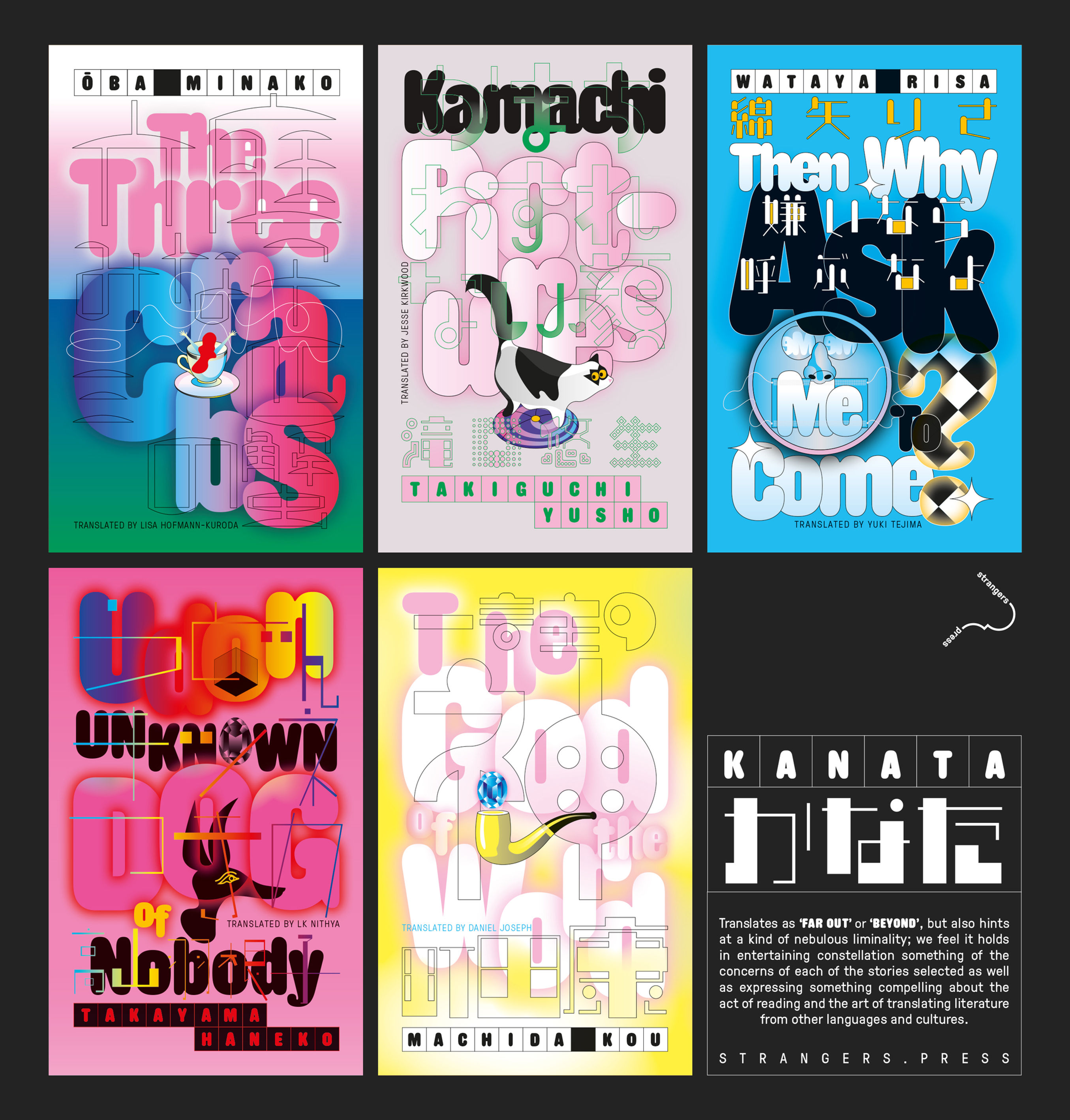KANATA 1 The Three Crabs
by Oba Minako
translated by Lisa Hofmann-Kuroda
“The dark waves were eerie, the water as deep and warm as the mouth of some vast leviathan, enveloping them with the warmth of a giant tongue. They were large, tepid waves that sucked them in and choked them. In the pale light of daybreak, they felt as beautiful as mermaids. They were just the right age to be mermaids.”
The Three Crabs is a story of rootlessness and dissolution set in Vietnam-era America centred around a party and crucial 24 hours in the life of a housewife. It focuses on a group of Japanese diaspora friends – their rivalries, their foibles, their infidelities – but its subject overall is America and what it does to people, culture, and senses of belonging. Sensitively translated, it has subtle shades of Carver after Lish; Fitzgerald, Richard Yates, but a sensibility all its own. If it were a painting, it might be a Hopper; if it were a series, it might be Madmen, but viewed and framed by a Japanese eye.
KANATA 2 Kamachi Pictures
by Takiguchi Yusho
translated by Jesse Kirkwood
"Though we’ve never actually gone and stood in front of her little stage, we like to sit here at the window like this, peeking over and listening in."
Two stories that consider the slipperiness of memory, partnerships, loss, and the stories men and women tell each other. The first features a female storyteller who continues to narrate tales as a form of blessing for her and her husband, who she has since lost. The second is the story of an older man remembering his lost wife – focusing on the old photographs he has of her, which he keeps looking through.
KANATA 3 Then Why Ask Me To Come?
by Wataya Risa
translated by Yuki Tejima
“How times had changed. She’d even broken out the champagne flutes — plastic, but still — for our pre-meal drinks. In the afternoon light, the bubbles sparkled in a different way than they do after dark. They seemed more wholesome, more free.”
This story orbits a BBQ gathering taking place during a pandemic lockdown, to which our main protagonist has been reluctantly invited, along with his wife, by his wife’s best female confidante. Unbeknownst to him, he is about to be confronted over something he thought would remain a secret…
KANATA 4 UDON: Unknown Dog of Nobody
by Haneko Takayama
translated by LK Nithya
“The stench intensified further, far beyond a bearable pungency, and Kazue began to feel a piercing pain in her temple. The stench swirled through the air, aggressively noxious, as Kazue turned to Misa, who was dazed with fear.”
In this disorientating, surprising, and intriguing story, a strange, organ-like creature is discovered in a styrofoam box before being taken in to be cared for by a family over many years, with ultimately bizarre consequences.
KANATA 5 The God of the Word
by Machida Kou
translated by Daniel Joseph
“Since you asked: I am the great god Hitokotonushi of Kazuraki, known as Kotosaka no Kami, the WordRender, he who can render anything, be it felicitous or ill-omened, with but a single word. Nice to meet you.”
The God of the Word is a witty and wry retelling of the Kojiki (‘Record of Ancient Matters’), completed in 712 CE, which is considered the oldest extant Japanese text. It is a myth-history documenting (read: legitimising) the divine lineage of the emperors of the Yamato court, including the Wakatakeru no Mikoto of our text (supposedly the real historical figure the rest of the 14 confabulations were arranged to legitimise). This lively and hilarious translation is guaranteed to make you smile, while also gesturing towards the serious and relevant consideration of who gets to tell the tall tales on which we build our own narratives.
top of page
SKU: 978-1-915812-88-9
£30.00Price
bottom of page



